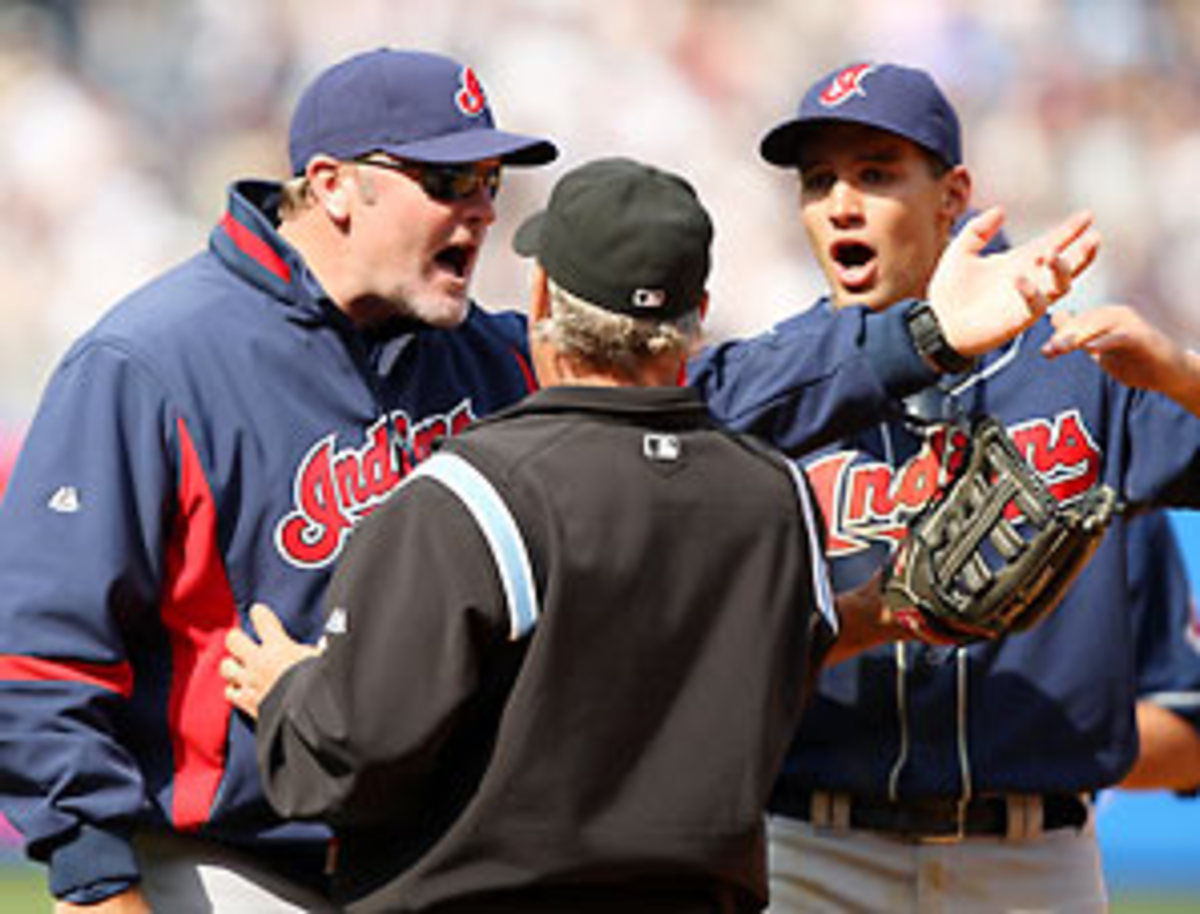With two months in the books, it's time for certain teams to sell
Think your team that stumbled through the first two months can still make the playoffs? Think again. While we all might easily remember the comeback of the 2005 Astros, who began June at 19-32 and wound up in the World Series, the reality is that teams that are bad for the first two months tend to remain bad, a corollary that the Cleveland Indians, for one, might do well to heed.
Here are the facts. There have been 104 teams to make the playoffs in the 13 full seasons of the wild-card era. Exactly three of them, or 2.9 percent, were worse than five games below .500 when June began. Here are the three outliers:
1. 2005 Astros (19-32 start; 89-73 final record).2. 2007 Cubs (22-29; 85-77).3. 2007 Yankees (22-29; 94-68).
This is very bad news for the Indians, Athletics, Nationals, Pirates, Astros, Diamondbacks and Rockies. One word of advice: sell. Better to make players available now, especially for players on the last year of deals. A four-month rental has more value than a two-month rental.
What about the teams with records only slightly worse than .500? The news is better, but not by much. Only 12 teams (11.5 percent of wild-card playoff teams) made the playoffs after entering June with a losing record. Sorry, too, Marlins.
The news is especially bad for AL laggards. Only four of the 52 AL playoff teams (2007 Yankees, 2006 Athletics, 2006 Twins and 2002 Athletics) entered June with a losing record. And no AL team has won the pennant in the wild-card era after starting June with a losing record. So class dismissed, Rays, Orioles, White Sox, Twins, Royals and Mariners.
Still, most teams do their best to keep up appearances, lest they signal to their fans even before school is out and prime-attendance season is in that their team has no shot. And so you will hear, "We'll hit when the weather warms up" ... "We're a second half team" ... "Wait until our star pitcher comes back from [insert catastrophic arm injury here]; it will be our trade-deadline acquisition" ... and other bromides of the desperate.
Take Cleveland, for instance. (Why not? The Magic did, as well as a team in every major sport since 1964.) The Indians began June at 22-30 with their best player, Grady Sizemore, on the disabled list with an inflamed elbow that could keep him out from two to six weeks, and then they promptly lost their first game of the month. Now, the Indians can choose to believe they will become only the second of 108 playoff teams to make the postseason after starting June eight games or more under .500, or they can start shopping the likes of Mark DeRosa, Carl Pavano, Jamey Carroll and Rafael Betancourt. (Victor Martinez, the definition of a franchise player, and Cliff Lee, an ace under a good contract, can't be had without a ransom note right now).
"There's nothing going on right now other than preparation," Indians GM Mark Shapiro said about what path Cleveland might take. "We have been a preemptive team in the market in past years. But this is too early to be preemptive."
Shapiro was preemptive in trading aces Bartolo Colon in 2002 (June 27 in a deal that brought him Sizemore and Lee) and, to a lesser extent, CC Sabathia in 2008 (July 7). Rarely will you find a significant deal in early June. Why? Again, teams are reluctant to make a move that will be interpreted as a public surrender, even when the odds suggest it might be the prudent thing to do. "There is very little [trade talk] going on now," said another GM.
And so the Indians will play the optimism game for another month: pitchers Jake Westbrook and Aaron Laffey are working their way back from injuries, Travis Hafner is coming off the DL and maybe Sizemore doesn't need arthroscopic surgery on his elbow. Then there is the hope that the AL Central is a very forgiving division, an idea that might be foolish in light of how well the Tigers have pitched and played defense. The Tigers have not used a starting pitcher this season older than 27 and began the month third in the league in defensive efficiency, a measurement of how well teams turn batted balls in play into outs. (Not coincidentally, division leaders Texas, Detroit and New York ranked 1-3-5 in that category.) Detroit is, in fact, the one team in the AL Central capable of running away with the division.
"Up until very recently we were more in the mode of looking to add," Shapiro said. "I've probably slowed the effort to try to acquire. We're probably more in the middle ground right now. People may think we're crazy, but we still like the core of this team."
Cleveland has been hit somewhat hard with injuries (Westbrook, Laffey, Hafner, Anthony Reyes), but the Indians' pitching staff has the worst ERA in the league, the worst walk rate and the worst WHIP. Cleveland already has run through 22 pitchers, the most in the league. In short, their won-lost record is no fluke, even with a good offense (third in runs, first in on-base percentage).
Would-be contenders that would appear to be even more buried by the first two months include Oakland, Houston, Arizona and Colorado. In some ways, such teams are now competing against one another: Who will be first to the trade market? Despite what playoff history suggests, the answer might not come until next month.





